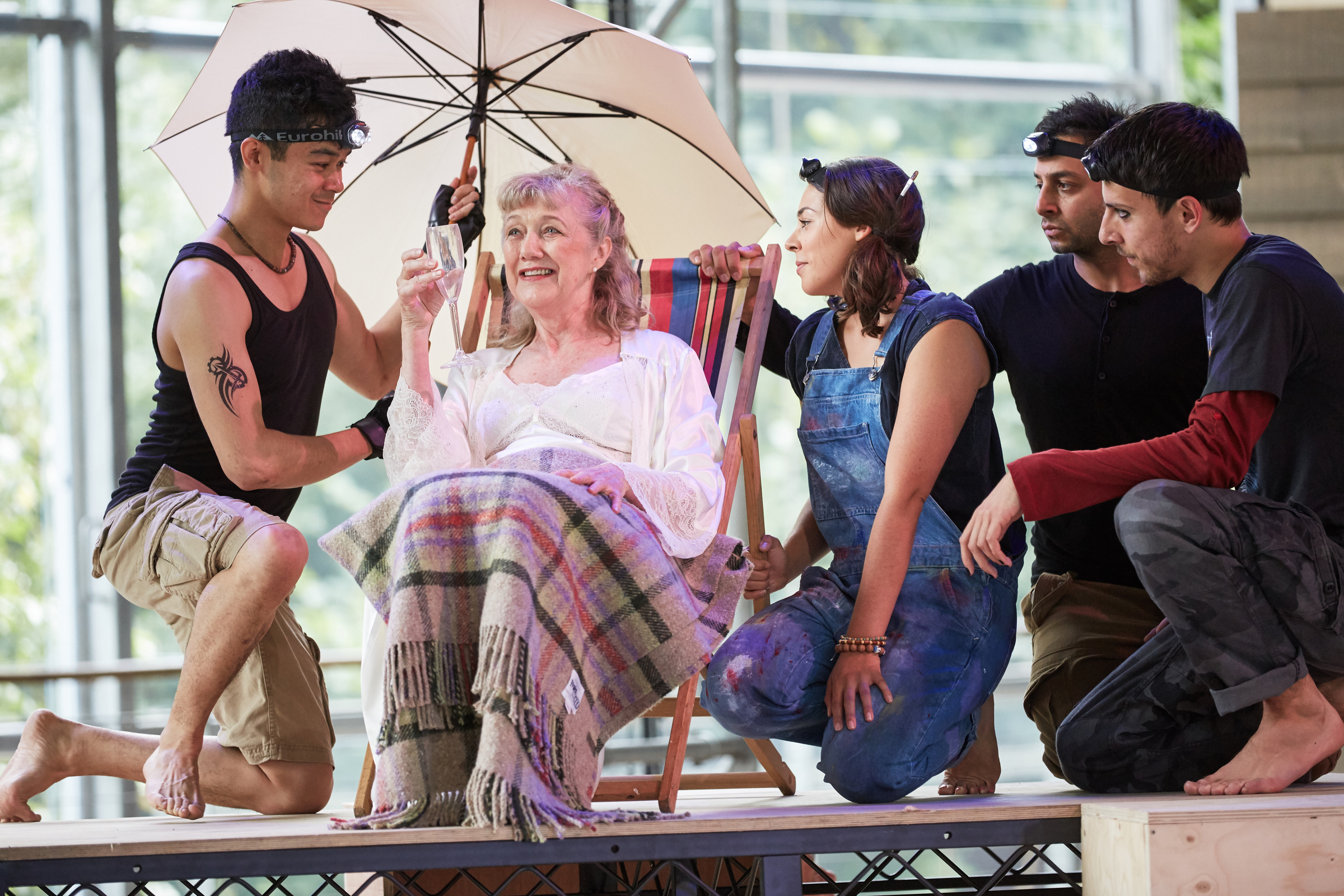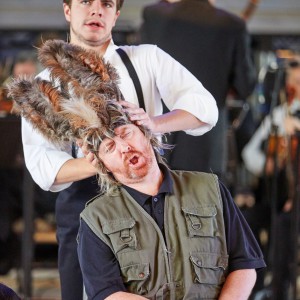Garsington Opera & the RSC
Garsington Opera, Wormsley, 17 July 2015
It is not often that two artists of unimpeachable genius can be brought together to create something that excels their individually created works, but such is the case with Mendelssohn’s music for A Midsummer Night’s Dream. In the concert hall, while convincingly beautiful, it can seem remote from the play, particularly if one is aware of many recent productions. However, put together with the sensitivity that Douglas Boyd and Owen Horsley have brought to the current presentation at Wormsley, we begin to see that Mendelssohn’s score is far more than incidental music. While it does not go so far as to become a singspiel the impact of the score makes a profound effect upon the action and the characterisation. Most operatic versions of Shakespeare are so far removed from the original as to be works in their own right but here we are faced with a combination which regularly seems to exceed either. The final moments alone attest to this. Puck’s closing speech can seem a little flippant, a call for applause, but here, underpinned by Mendelssohn it has a far deeper spiritual impact. The only other time I can recall anything similar was in Peter Brook’s famous RSC production where give me your hands meant literally that and the cast went through the audience passing the peace. A magical moment, which was echoed at Wormsley. This should not imply that the whole was over serious. The comic moments, focused on more cleanly with the abridged text, were newly minted and genuinely funny. The regional accents for the mechanicals worked well, with Chris Nayak’s Wall particularly effective. Using David Rintoul and Marty Cruickshank as both Theseus/Hippolyta and Oberon/Titania may be encountered quite often today but was made to highlight the parallelisms in the text and across the couples. Their age also gave weight to their presence and authority. Oliver Johnstone’s Puck and David Collings Egeus/Philostrate were finely etched.
Placing the Garsington Orchestra on stage not only ensured we could hear all the detail of the score but helped focus the attention of the audience. All too often in the theatre, once the actors have disappeared the audience starts to shuffle or whisper. With Douglas Boyd centre stage there was no hint of sound, even during the long nocturne at the end of act one. I am not aware that this production is being recorded but it will be a great pity if it is not.
Moreover the venture is promised to be the first of a series and we can look forward to a danced interpretation of Haydn’s The Creation next year.
If you missed the sold out performances of The Dream at Wormsely you may be able to catch it at the Queen Elizabeth Hall on 22, 23, 24 July and at the Royal Shakespeare Theatre, Stratford upon Avon, on 26 July.


